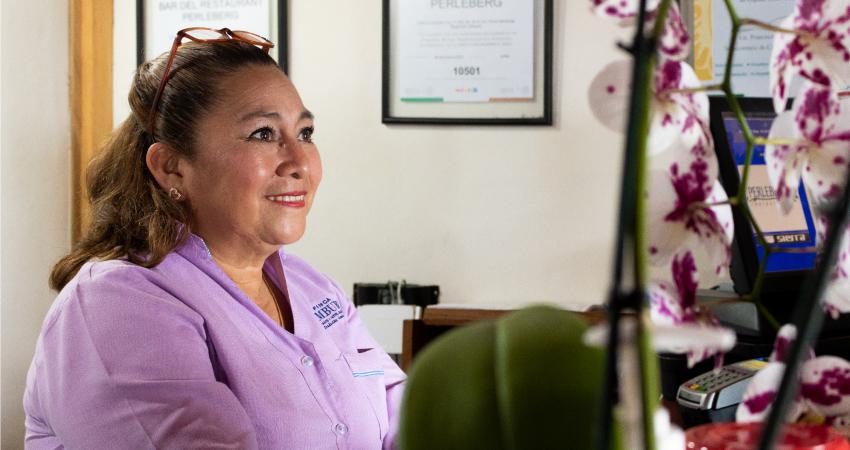IOM presents roadmap for improving integration of migrant women in southern Mexico

Tapachula (Mexico) - Specialists in gender and migration of the International Organization for Migration (IOM) presented a report with 42 recommendations that, if implemented, will allow a more adequate economic, labour and social integration of migrant women in two key migration corridors in the state of Chiapas, in southern Mexico.
In the document entitled "Processes of Economic, Labour and Social Participation of Migrant Women in Chiapas, Mexico," the experts argued that currently in Chiapas, a Mexican state bordering Guatemala, there is an incipient feminization of migration and a growing active and independent mobility of women that has been gaining visibility due to multiple causes.
"The factors that drive the migration of women in Central America and the Caribbean are diverse and range from the search for better opportunities, family reunification, the attempt to avoid or safeguard themselves from the violence that occurs in their communities or within their families, added to discrimination and gender-based violence, which is of great concern to us," said Michele Klein Solomon, IOM Regional Director for Central America, North America and the Caribbean, in the presentation of the study.
The study recalls that, for decades, international migration through Chiapas was perceived as a process carried out by adult men, while migrant women, boys, girls and adolescents were immersed in regular migratory processes in which, for the most part, they sought family reunification.
One of the main contributions of the assessment is that it makes visible in an important way the challenges that migrant women face when trying to integrate themselves socioeconomically in the communities of southern Mexico. Gender, migratory status, age, nationality and the position they occupy within the family structure that accompanies or remains in their places of origin are elements that condition women.
It also calls for the strengthening of civil society organizations in the protection of the labour rights of women domestic workers, with emphasis on migrants, through training, working groups, and exchanges of experiences in this area.
Twenty-four general recommendations are also presented, including the need to disseminate care routes for services related to sexual or gender-based violence; the promotion of access to public daycare services and formal schooling for migrant children and adolescents accompanying their mothers and families, and the creation and operation of a regional labour observatory with a gender perspective.
Other areas in which there were recommendations are paid work in the home, with regard to attention to foreign women employed in the commerce and services sectors, those working in the private sector, the self-employed, and those engaged in entrepreneurship. Thirty-four participants contributed to the study, including city councils and representatives of information desks for migrants in the municipalities of the Central and Pacific corridor of Chiapas, civil organizations, government institutions, consular and civil society representatives, and UN agencies.
The study was conducted within the framework of IOM’s Western Hemisphere Program, funded by the U.S. Department of State Bureau of Population, Refugees and Migration.
To see video testimonies of migrant women in Chiapas, click here: https://tinyurl.com/ChiapasWomen
Or contact Alberto Cabezas, National Communications Officer at IOM Mexico for more information, at the email: acabezas@iom.int or by phone tel.: +52 55 7925 0370